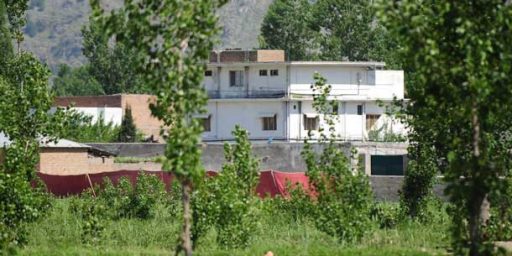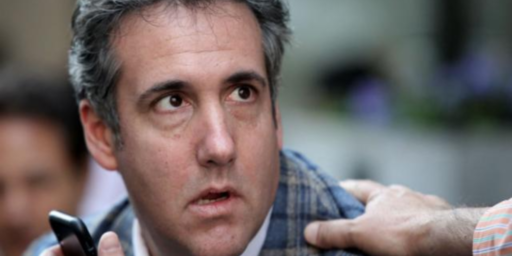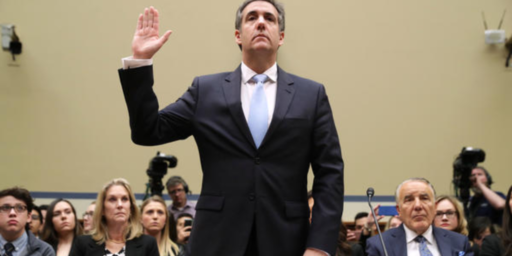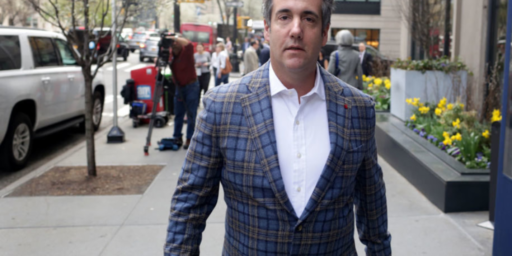U.S. Aid Policy For Musharraf: Buckets of Cash
Spencer Ackerman provides an interesting look at how the U.S. provides bribe money military and humanitarian aid to Pakistan. Basically, it’s on the honor system:
In fact, however, a considerable amount of the money the U.S. gives to Pakistan is administered not through U.S. agencies or joint U.S.-Pakistani programs. Instead, the U.S. gives Musharraf’s government about $200 million annually and his military $100 million monthly in the form of direct cash transfers. Once that money leaves the U.S. Treasury, Musharraf can do with it whatever he wants. He needs only promise in a secret annual meeting that he’ll use it to invest in the Pakistani people. And whatever happens as the result of Rice’s review, few Pakistan watchers expect the cash transfers to end.
[…]
In theory, budget support is supposed to free up the treasuries of the four countries that receive it for investing in their national infrastructure. But in practice, recipients can do with it whatever they like. “The notion is it gives them greater flexibility on how to use the money,” explains Craig Cohen, vice president of the Center for Strategic and International Studies. “The trade-off is accountability.”
In Pakistan’s case, the only oversight is an annual agreement, known as the Shared Objectives statement, whereby top State Department and Treasury Department officials receive from Musharraf deputies — usually Prime Minister Shawkat Aziz — an explanation of how Musharraf intends to spend the money. The agreement is reached entirely in secret. “A good question is what are the objectives we’re basing this budget support on,” Cohen says.
Read the whole thing–it’s a disturbing and illuminating piece, and only goes to underscore an excellent point made by Matthew Yglesias today that the U.S. really has no choice but to meddle, somehow, in the current Pakistani crisis:
The trouble, though, is that while it would be easy for us to not “meddle” if political protests started to rock Laos or Belarus, we’re already eye-deep in Pakistan-related meddling in the form of our huge post-9/11 aid packages. To pull the aid carpet out from under Musharraf would be a kind of meddling. To continue the unconditional aid policy, however, is a different kind of meddling. And to continue the aid but attach more strings to it — to make it clear that a violent crackdown on peaceful demonstrators would result in aid cuts, say — would also constitute a kind of meddling. Similarly, if Pakistani officials ask American diplomats what they think about the situation and they don’t say anything, that’ll likely be read as a green light for harsh measures.
Basically, we’re in a position where “don’t meddle” doesn’t mean anything.
Sad to say, that last statement is far too accurate.






Yeah, that’s sort of the point I was trying to made on OTB Radio this evening. We don’t have the option of butting out.
What else is new? Does anyone remember the father of Islamic extremism in Pakistan’s military? Reagan’s good buddy, Gen. Muhammad Zia- ul Huq’s great accomplishment–aside from giving support to Islamic militants fighting in Pakistan (sound familiar?)–was to introduce sharia law to the country. During that period he was receiving millions from Reagan to help foster Islamic extremism not only in his own country–but also in Afghanistan.
Pakisan is and always has been a failed state with tribal conflics that go wayyyy back. Class (MIDDLE) attitudes amoung pakis I know favor a benevolent dictator over the jihadist cranks. A middle class is the best defense against the nuts.
Feeding Musharraf to the dogs, like the peanut president did to he shah is not an option. What happens in Pakistan will drive events throughout the muslim world. Better to stop it here, at the antipode to the gates of vienna, and let Musharaff continue so long as the Army supports him.
I have no good answers so how about a question. Why is it such a big US talking point that Musharraf “must take off his uniform” yet Bush so much likes wearing his as the CinC? I could think of hundreds of things I’d like to see changed in Pakistan before I’d focus on this one.
Have none of mrb’s Pakistani friends pointed out to him that calling them “pakis” is an insult analogous with the N-word for black folks?
If not, I’m inclined to believe his friends are of the imaginary variety.
Regards, C